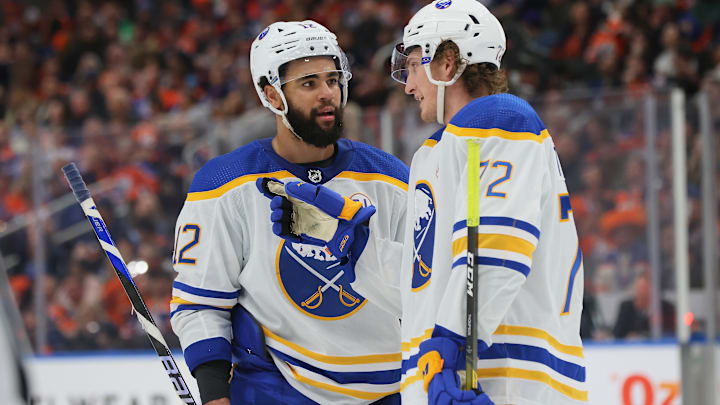Failing to take advantage of pedestrian goaltenders
When the Sabres recorded their first win of the 2023-24 season, it occurred against Jonas Johansson, who only gave up two goals in the game’s first 60 minutes before he allowed the game-deciding goal in overtime. But it didn’t stop there, as they put up just a trio of goals on Dan Vladar before Jake Allen recorded a 0.973 save percentage in what was a 3-1 loss to the Montreal Canadiens.
After showing off some of their high-octane style for a few games, Buffalo faced a Philadelphia Flyers team with Samuel Ersson in the net on November 3rd. Ersson also allowed just one goal and recorded a 0.955 save percentage against Buffalo.
It became a problem for the Sabres all season, and while they have certainly had their moments, specifically in a 9-4 blowout win over the Toronto Maple Leafs, the team we saw last year would have easily put four or more goals up on those mentioned above.
Sure, injuries and tweaks to their game - plus an abysmal power play - were all factors here. But some of these teams put you under the impression that they were daring the Sabres to return what made them so dangerous last season. The problem? Buffalo never, or rarely, answered.
